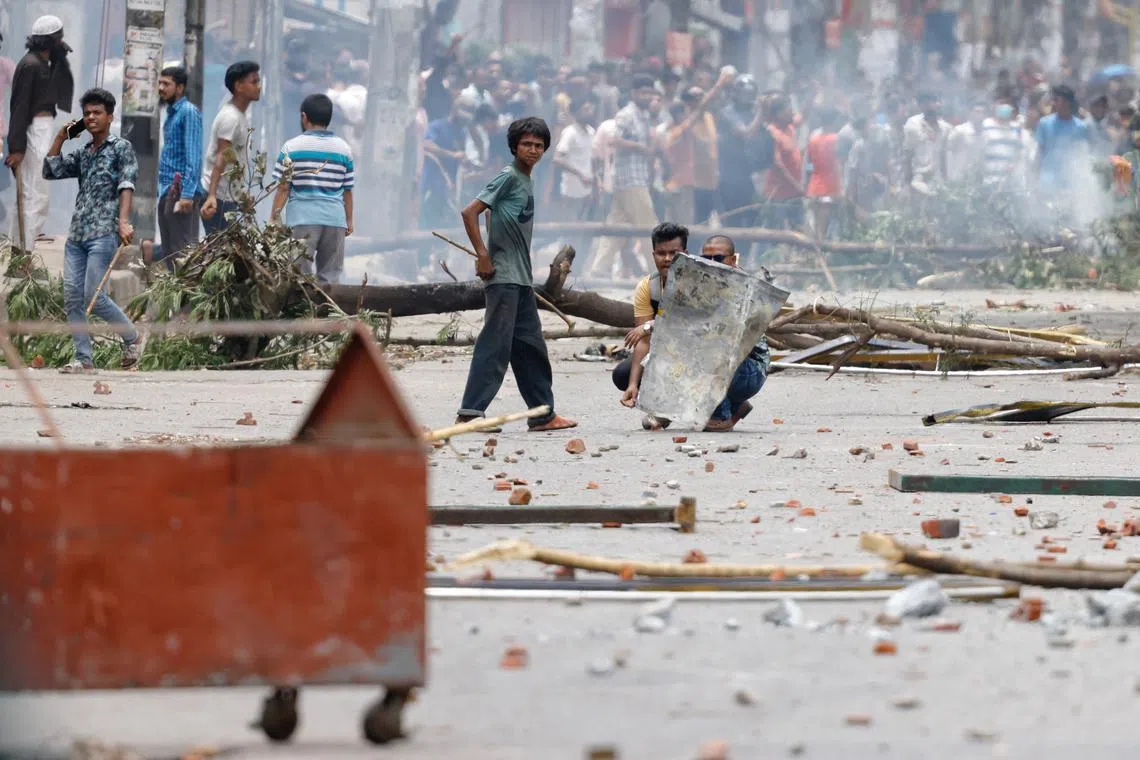History of violence in Bangladesh, a country born out of war
Sign up now: Get insights on Asia's fast-moving developments

Protests by thousands of students in Bangladesh against quotas in government jobs have widened.
PHOTO: REUTERS
Follow topic:
NEW DELHI - Deadly protests by thousands of students in Bangladesh
Its founding father and first prime minister Sheikh Mujibur Rahman was assassinated in 1975 in a military coup, which brought in a long period of military rule.
Though democracy was restored slowly by 1990, the country of nearly 170 million people has been rocked by sporadic periods of sectarian or political violence in recent years.
2009
Unhappy with their wages and living conditions, revolting border guards kill more than 70 people in the capital Dhaka, most of whom were army officers.
The “mutiny”, as it is called, spreads to nearly a dozen towns, ending after six days as the angry guards surrender following a series of discussions.
2013
The year sees about 100 people being killed in political violence under the rule of the Awami League party led by Prime Minister Sheikh Hasina, the daughter of the first prime minister.
Elections announced in November and the hanging of Islamic leader Abdul Quader Mollah, leader of the opposition Jamaat-e-Islami party, for crimes during the 1971 war, results in nearly 100 more deaths.
2016
Twenty hostages, most of whom are foreigners, are killed in an attack claimed by the Islamic State militant group.
The militants attack an upmarket restaurant in Dhaka's diplomatic area, resulting in a 12-hour stand-off, until it is stormed by security forces.
The dead include nationals of Italy, Japan, the United States and India. It comes after months of attacks on people advocating a liberal lifestyle in the country.
2021
Extremists in the Muslim-majority country target minority Hindus.
In October, at least six people are killed and their houses destroyed, in one of the worst instances of communal violence in Bangladesh in more than a decade.
Earlier, Hindu temples are attacked as violence spreads, with thousands of hardline Islamist group members protesting a visit by neighbouring India's Hindu nationalist Prime Minister Narendra Modi, to mark the 50th anniversary of Bangladesh's nationhood.
2024
Ms Hasina returns to power in an election boycotted by the main opposition Bangladesh Nationalist Party, which accuses the Awami League of trying to legitimise sham elections.
Attacks on poll booths and train arson kill four people during this time.
In July, more than two dozen people are killed as security forces clamp down on thousands of students protesting against quotas in government jobs. REUTERS

